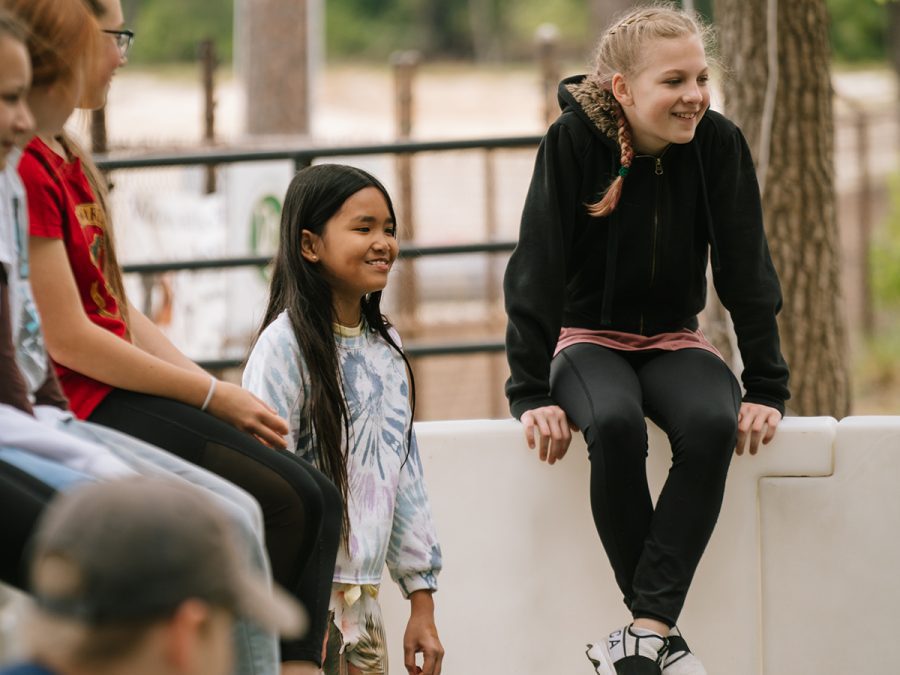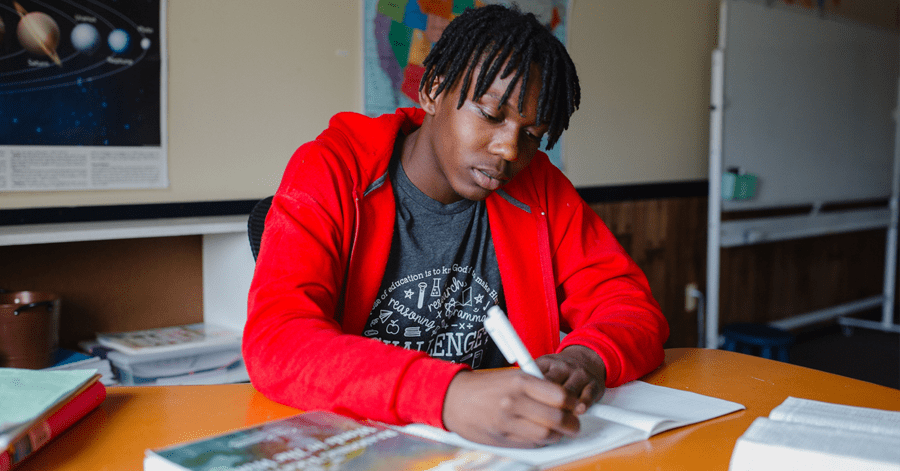Classical Conversations® Challenge II is the fourth level in our Challenge program. Here’s an overview of what you can expect if your student is soon to enter Challenge II.
An Overview of Classical Conversations Challenge II
This summary of the Classical Conversations Challenge II program will cover its respective student ages and grade level, theme, strands, and reading list.
Challenge II Student Ages and Grade Levels
Families with students ages 15 and up can enroll in Challenge II. Compared to traditional grade levels, this means Challenge II is equivalent to 10th grade or sophomore year of high school.
The Challenge II Theme
As with all levels in the Challenge program, the readings, projects, and discussions in Challenge II are centered around a unique theme. This year, that theme is freedom provides opportunities for noble choices. Throughout Challenge II, students are encouraged to consider the choices made by historical and fictional leaders as they study the transformation of ideas that have shaped Western thought and culture today. In considering whether these choices were wise or unwise, students begin to learn how to make noble choices in their own lives.
The Challenge II Strands
Throughout the Challenge program, students practice six skills of learning. These skills — known among Classical Conversations members as “strands” — are logic, grammar, research, exposition, debate, and reasoning. In Challenge II, students practice these skills as they study and discuss quality content with their peers and a trained facilitator in a local community.
Logic
The theme of Challenge II is echoed in the logic strand as students learn multiple ways to solve math problems and decide on the best approach. This year, they tackle new abstract concepts in algebra and geometry, completing problem sets at home and discussing solutions in community. Students are also encouraged to notice how math plays a part in nature, art, and music.
Grammar
In the Challenge II grammar strand, Classical Conversations students progress from studying Henle: First Year Latin (used in Challenge A – Challenge I) to Henle: Second Year Latin, focusing more on translating and reading Latin rather than completing simple grammar exercises. In particular, students learn the subjunctive mood, which enables them to express and translate more complex sentences (and, therefore, ideas). Students also encounter Caesar by reading, translating, and discussing his influential conquests in leading the Roman empire.
Research
Challenge II students study biology as part of the research strand. They learn about the complexity and mystery of life, from studying “simple” individual cells to human anatomy. In community, students observe plant and animal life, both small and large, through microscopes and dissections, sketching and recording their findings in journals. At home, reading assignments introduce students to various species and the systems that sustain them.
Exposition
Challenge II students read great British literature in the exposition strand, including Beowulf, The Pilgrim’s Progress, and The Hobbit. They discuss with one another in community how the lives and choices of the fictional heroes in these stories compare to great historical leaders like Caesar. By participating in these conversations, studying literary terms, and writing persuasive papers, students can develop strong composition and rhetorical skills that help in communicating their perspectives. Of course, these skills are also practiced in other Challenge II strands, like during students’ involvement in formal debates.
Debate
For debate, Challenge II students learn about great artists and composers from Western history and consider how the arts influence and are influenced by culture. In community, students discuss challenging questions about art, like “Are there objective standards for beauty?”, “Does this work of art portray truth?”, and “What is the value of art to a civilization?” Throughout the year, they practice public speaking through several formal events, like team policy and Lincoln-Douglas debates.
Reasoning
In the reasoning strand, Challenge II students continue to learn what it means to think logically and clearly. They look at arguments that arose throughout history and are encouraged to see how logic can lead to truth and a basic understanding of the Christian worldview. In this strand, students are first introduced to Socratic dialogue, a method of asking good questions to arrive at the truth.
The Challenge II Book List
The Challenge II reading list includes a wide range of books and resources to prompt students to consider what it means to make wise choices. To view the Challenge II book list, visit our bookstore.
How to Enroll Your Student in Challenge II
Students enrolled in the Classical Conversations Challenge II program consider the choices made by great figures, both historical and fictional, and are encouraged to think deeply and discuss the development of ideas that have shaped Western thought. As they do so, they can begin to notice how freedom in their own lives will open doors to make virtuous choices.
To learn more about or to enroll your student in the Classical Conversations Challenge II program, click here.




